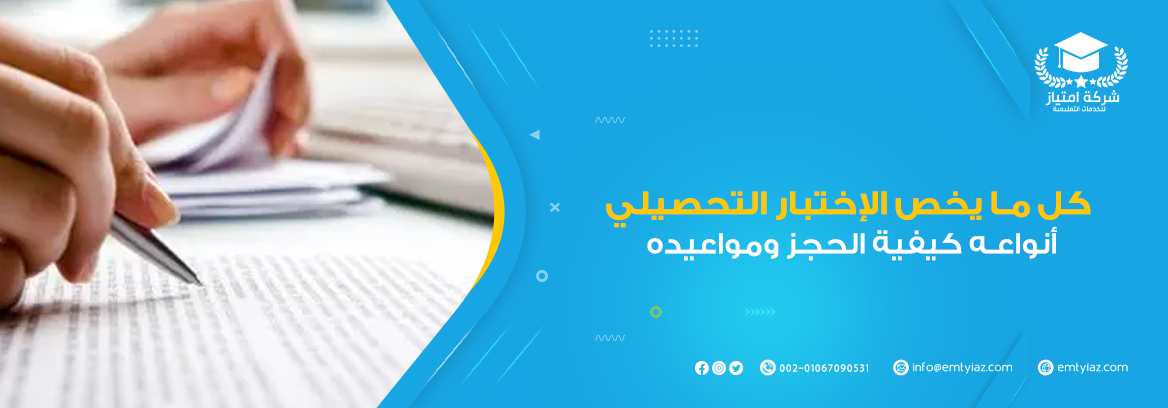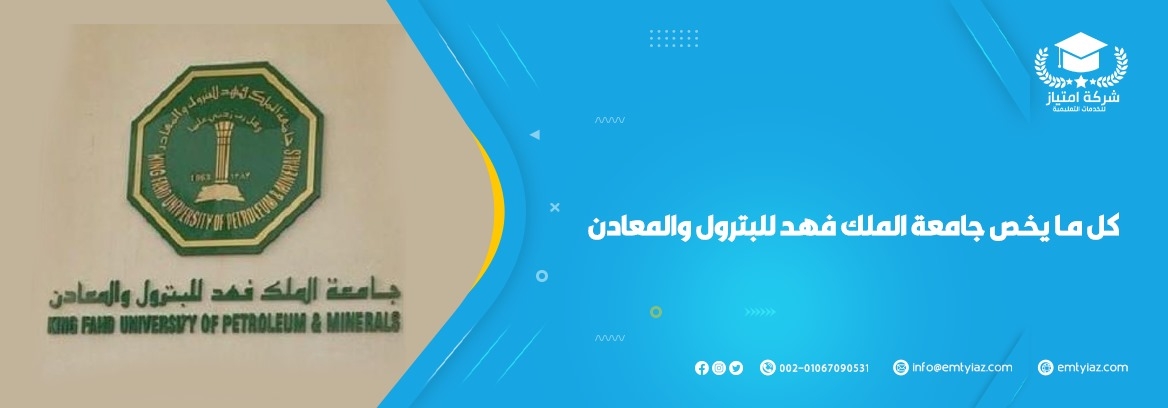When conducting a university study, there is often an assignment and writing that must be done, which can be daunting at first. The most important thing to remember is to start - and start early.
If you give yourself enough time to plan, start searching, write, and review assignment, you don't have to rush to meet the deadline. Once you start, you'll also have something on the paper or on the screen that you can improve.
Table of contents :
| 1- | What is the assignment? |
| 2- | Steps to prepare a successful assignment? |
| 3- | Types of Assignments |
| 4- | How do you search for your information by writing assignments? |
| 5- | Conclusion |
What is the assignment?
Assignment allows students to send work to their teacher to estimate it. The work may be written text online or downloaded files of any kind that the instructor device can read. Estimation may be in simple percentages or custom metrics, or more complex models can be used. Students can submit individually or in groups.
Steps to prepare a successful assignment?
Using the steps below will help you make your tasks executable, interesting, and even enjoyable.
Step 1: planning
Step two: analyze the question
Step 3: Drafting
Step 4: Search for information
Step 5: write
Step 6: Editing and auditing
Step 1: planning
The assignment layout will help you focus and keep you on the right track.
Check the assignment value and what percentage of the final mark is. This will help you determine how much time you will spend on it.
Check the grading schedule to see what your instructor will be looking for when determining your work and how the grades will be assigned. This will help you know what to focus on. If there's no teaching schedule, check the assignment question to see if the information is there.
Think about what you need to do to complete your task (for example, what is research, writing drafts, checking references, reviewing, editing, etc.). Divide this assignment into assignment list to be done.
Give each assignment deadline, and act in reverse from the due date of the assignment.
Step 2: Analyze the question
Before you can answer a question, you need to know what it means. Read it slowly and carefully, and try to understand what is expected of you. Ask yourself:
what is the Question? what is the subject?
What does the question mean?
What should I do?
To help you understand the question, try rewriting it using your own words using the format below:
"This task is about ______________________ you should __________________"
When you analyze the question:
Find words that tell you what to do (keywords). For example, analysis, comparison, variance, etc.
Check the meaning of the words used.
Look for topic words, which tell you what to write about.
Look for restrictive words, which limit the topic and make it more specific.
You can also check additional information about the assignment and what is expected of you in the course materials or on the course page or forums.
Tip: Whenever you find something about the assignment on a course page or in a forum, save a copy. If you save all the information you gather about the task in one file, you will have all the information in one place when you start writing.
Step 3: Drafting
Drafting an outline will give you structure to follow when it comes to writing assignment. The type of task you are doing will give you a broad structure, but you should also check the question schedule and marking, as this will help you understand how the lecturer expects the topic to be organized, what to include, and the sections deserves the most marks.
Outline of the article
Most of the tasks you need to do are articles, which generally follow the same infrastructure:
Introduction (+ 10% of the assignment) - This is where you present the topic and key points, and briefly explain the purpose of the assignment and the intended result or outcomes. It is a good idea to write the introduction last, so you know what to include.
Discussion (+ 80% of assignment) - This section is divided into a number of paragraphs. Identify the points you want to discuss and include a new paragraph for each major point. The paragraph usually begins with an opening sentence explaining the main idea, followed by supporting evidence and examples. In your outline, try to include draft topic sentences and some ideas outlining what you want to include in each section.
Conclusion (+ 10% of assignment) - The conclusions briefly reaffirm your main argument, evaluate your ideas and summarize your conclusions. They do not provide any new information.
Step 4: Search for information
Before you start writing, you need to research your topic and find relevant and reliable information. You'll find some of them in the course materials and recommended readings, but you can also try:
Emtyiaz Library
Your local public library.
Talk to the experts.
Online sources.
Once you find the information, the next step is to evaluate it to make sure it is appropriate for your task. For more information on how to find and evaluate information, go to:
Step 5: write
- Once you find the information you need, it is time to bring it together and write your assignment.
- Write your first draft
- Use your outline and fill in the blanks, and write down the main points for each section.
- Write freely, and get as much writing as possible without worrying that the wording is 100% correct.
- You might find it easier to start with the result so you know the direction your writing is heading, or the background.
The introduction is often the most difficult to write, so leave it to the end. - Don't waste too much time trying to make this draft perfect because it will change!
- fine tune
- Review your first draft, make sure it makes sense and includes everything you need.
- Set the wording and make sure your writing is well-checked.
- Make sure to keep different copies of your drafts as you might want to refer to.
- Leave writing for one day, read it, and then refine it again.
- Collect the list of references.
Step 6: Editing and Auditing
Once you have written your assignment, you can improve it by editing and proofreading, but before you take a break. Even a short break helps you get some distance from your work so you can check your assignment with fresh eyes.
Look at the big picture
- Did you answer the question you selected? Check your task against the correction schedule as well as the question.
- Is the structure correct?
- Did you include all the relevant parts? For example, Title Page, Introduction, Conclusion, Reference List?
- Is the content logically organized?
- Do you read your assignment well, as each section flows smoothly to the next section? The best way to check is to read it aloud.
- Did you use your own words and acknowledge all your references?
- Is your assignment well presented?
- Check out the details
- Check grammar, punctuation, and spelling. Do not use the spelling checker only (it won't capture everything). have you acknowledged all the works that you do not make? Is your APA reference correct?
- Are your pages numbered?
- Did you include your name, student ID, assignment details, and date on each page?
- Tip: If possible, ask a friend or family member to check your task, as it may be difficult to see the errors in your own work.
- Before sending assignment, print it and check it for the last time. Printing errors are often easier to spot than on screen.
Types of assignments
Your tasks are often in the form of an article or report, but there are a number of other types of tasks that you may have to do during your study.
The following is an overview of the different types of tasks you might encounter.
Click on the headings below to learn more about each of these types of tasks:
- Articles
- Reports
- Case studies
- Summaries
- Annotated bibliographies
- Reviews
- Oral presentations
- poster sessions
Articles
The article is part of writing about a particular topic, topic, or issue. Articles consist of the following:
Introduction - Articles always start with an introduction explaining what you will talk about, how you will talk about it, and what you will present in the essay (your thesis).
Body - where your key points are discussed. This means presenting and explaining your point of view, and providing supporting evidence about your point of view and how it relates to your thesis.
Conclusion - this is where you reintroduce your introduction - topic, main points, and thesis.
Reports
Reports generally include presenting your investigation, analyzing information or an issue, recommending actions and making proposals.
Scientific and research reports, which provide information about something that has been done, such as some research. Its purpose is to describe, analyze, and evaluate what has been learned.
When writing a report, always keep the reader in mind. You want them to agree to your report and/or act on it. They need:
- Be believable.
- Be clear, concise, and easy to understand.
- Be correct (contents and English language must be correct).
- It has a clear recognizable structure or format, so that it is easy to understand.
Structuring the report
All reports have a similar structure, but some details may differ. The way they differ usually depends on:
- Report length.
- How formal should the report be.
- The type of report (for example, whether it is a research report, a lab report, a work report, or an investigative report).
- How formal should the report be.
Depending on the type of report, the structure could include:
- Title page.
- Executive summary.
- Contents.
- an introduction.
- Terms of reference.
- Procedure.
- the findings.
- Conclusions.
- Recommendations.
- References / bibliography.
- Appendices.
Case studies
A case study is an in-depth investigation conducted over a specific period of time. They are used to collect and present detailed information about a person, group, or situation, to try to understand what happened and why, or to analyze the situation to solve a problem. A case study contains a number of different stages:
- Identify the problem or issue.
- Connecting theory to real life.
- Research, including interviews and/or role-plays.
- information analysis.
- Decide on a solution or come to a result (conclusions).
- Justify your conclusion (your conclusions).
- Make recommendations.
- Determine how to implement the recommendations.
- Writing a case study.
A written case study usually consists of some or all of the following parts:
- Executive summary / summary / overview.
- Introduction / background.
- Discussion, including methods used.
- the findings.
- Conclusion.
- Recommendations.
- Implementation.
- References.
- Appendices (if any).
Summaries
A summary is a short abstract of an academic essay, thesis, or presentation at a conference or in-depth research paper. The aim of the summary is to provide a brief overview of the purpose of the paper. The terms brief or abstract are sometimes used in place of summary.
A summary usually contains:
- A summary problem statement, i.e. objective
- A detailed outline of the method (s) or approach used
- Results of the investigation.
- The implications of what was found.
- Conclusion (Conclusions).
Annotated bibliographies
An annotated bibliography is an alphabetical list of sources of information (such as magazine articles or book chapters), formatted as a bibliography or reference list, accompanied by a commentary on each source (which is called an annotation).
In general, the purpose of an annotated bibliography is:
- Identify a specific topic by critically reviewing the literature
- Provide an overview of key issues, arguments and research in a given region
- Encourage deeper engagement with individual resources to develop your analytical skills
- An annotated bibliography is sometimes presented as an evaluation task at the beginning of a research project to encourage you to scan and think about what has been discovered Already on your topic. However, assignment can also be given a stand-alone list to develop research and critical thinking skills.
Reviews
A review is an evaluation of a publication, project, or set of literature on a particular topic. Reviews focus on the purpose of something, and whether the purpose has been achieved. They summarize and gather arguments and ideas, but do not add new ideas. Review is similar to critical analysis.
poster sessions
poster sessions are a way to communicate your research or understanding of a topic in a short, concise format. It usually includes two elements - a poster and a brief explanation (usually no more than two minutes).
You will need to analyze and evaluate information, synthesize ideas, and demonstrate your understanding of a topic or the results of your research creatively. Although many students view poster presentations as "easy," they actually need a lot of thought and preparation.
Poster presentations develop your ability to communicate consciously (matching your explanation to your audience) and succinctly - an important workplace skill.
The purpose of your poster presentation will be shaped by how it is used in your specialty and the assessment task itself.
Make sure to read the instructions carefully. Do you indicate the purpose of the poster? What is the poster expected to achieve? This is your goal.
Now that you have an idea why creating a poster, start thinking about the content you want to include.
This tutorial will take you through the basic elements of poster presentations. It includes:
- Content selection
- Poster design
- Apply effectively
oral presentation
Part of your education at the university is developing good speaking and presentation skills, which will be beneficial in your academic and professional life.
You may be asked to develop and present an oral presentation yourself or with other students, and to answer audience questions about your presentation. To do this successfully, you need to plan before you start developing your presentation.
This tutorial will guide you through the process of planning, developing, and presenting your oral presentation.
To get a good grade for an oral presentation, you need to put a great deal of thought and effort into planning your presentation and designing the visuals, as well as practicing the presentation until you master it.
This tutorial will cover:
- Plan your presentation
- Develop your presentation
- Preparing the presentation
- Make a presentation
- Long presentations and group presentations
- Answer audience questions
- Virtual presentations
- Plan your presentation
How do you search for your information by writing assignment?
The amount and type of research you need to do varies with each assignment. There is no single way to conduct your research, but the tips below will help make your research more effective.
Decide what you want to know about assignment
When you are doing the research, it is a good idea to have a question in mind to let you know what you are looking for. Look at your assignment question and analyze it to make sure you know what it means and what is expected of you. Ask yourself:
What is the question about it?
- What does it mean?
- What do I need to do?
- When you look at the question, think about whether you need to find information that is a fact, opinion, personal reflections, news or other reports, analyzes, or something different. Also, check how much information you need to find.
This may depend on:
What you have to do.
Lecturer / teacher expectations.
Assignment length and assignment amount or percentage of semester mark.
Think about what you already know
When you start looking for information, think about what you already know:
What exactly is this?
What do I already know?
What do I need to know?
What do I think / feel about the subject?
What approach will I take?
Tip: Try to use a mind map to brainstorm about the topic and determine what you know and what you need to know.
How to search and write about assignment?
All assignment is a challenge. But with guidance on everything from research to writing and analysis to controversy, we'll help you meet the requirements and even improve your grades.
Understand the assignment
What did your lecturer ask you to do? How can brainstorming help you generate ideas? Find out how to get started with these important first steps.
Find and evaluate information
Getting the correct information is essential to producing a robust assignment, but how do you know if the information you find is reliable? Our guides will point you in the right direction.
Critical thinking
How can you demonstrate the critical thinking and analysis that your grade is looking for? These tutorials will show you how to develop these basic skills.
Writing
What is academic writing? How can you express your ideas clearly and accurately? Our tutorials will show you how to improve your writing style for your next task.
Academic integrity and references
You expect high levels of academic honesty. Learn how to cite and point correctly, and why it is important.
Search and evaluate information
In addition to searching educational materials for information, you can also try:
Recommended readings or specific transcripts (if your course contains any).
- Emtyiaz Library.
- Your local public library.
- Talk to the experts.
Online resources - Search using the Internet.
Tip: Wikipedia can be a useful starting point for your research. While it is not always considered the best source of information, good pages contain references that can lead you to more information.
What to do with the information you find
Start a quick reading of what you found to evaluate and make sure it's really what you need. Once you've made sure it's relevant, it's time for more in-depth reading.
Keep a list of everything you read, including information about what you decide not to use. Recorded: title, author, date and reference.
It has found a source so you can find the information again if you need to.
Your opinion and whether or not you found the information useful.
That way you'll remember what you've tried, and you won't waste time returning to resources that weren't useful.
Tip: Be sure to include enough information to compile the list of references, including author, title, version, publisher, date, ISBN number, and website.
Academic integrity and references
There is a set of rules and responsibilities that accompany academic study. Our resources explain everything from plagiarism to complicity to referral.
What is academic integrity? How can you ensure that your rights are not stolen? We have the resources to help you fulfill your responsibilities as a member of the academic community.
Citation and references
Certifying the materials, you consult allows others to verify your facts. Our tutorial explains what, why and how.
Copyright in Learning and Teaching
Our copyright site will inform you about all aspects of copyright in the context of the university.
A guide to pointing out patterns
Many reference methods are used across the academic community, and even within colleges. Find out everything you need to know about the method used in your field of study.
About Emtyiaz
Emtyiaz provides educational services, translation services, via the Internet, and distance learning throughout Egypt and internationally. Our focus is on the learner success of about 30,000 learners each year.
Conclusion
When you follow the approach above, assignment writing efforts reach your main goal and will bring you recognition in your field of study.
We hope our step-by-step instructions will help you create and properly format a successful assignment. Needless to say, it is very important to follow all the rules because the committee will take care to coordinate your paper during the defense.
If you need professional help creating and coordinating an assignment, please assign a talented expert from our team to complete your task without delay. We have the best professionals who know their work well. Order a perfect manuscript from our well-known writing company and surprise the committee with a successful document! It is easy to save your time thanks to our specialists. You can also save money thanks to good discounts and reasonable prices.
You can Read












